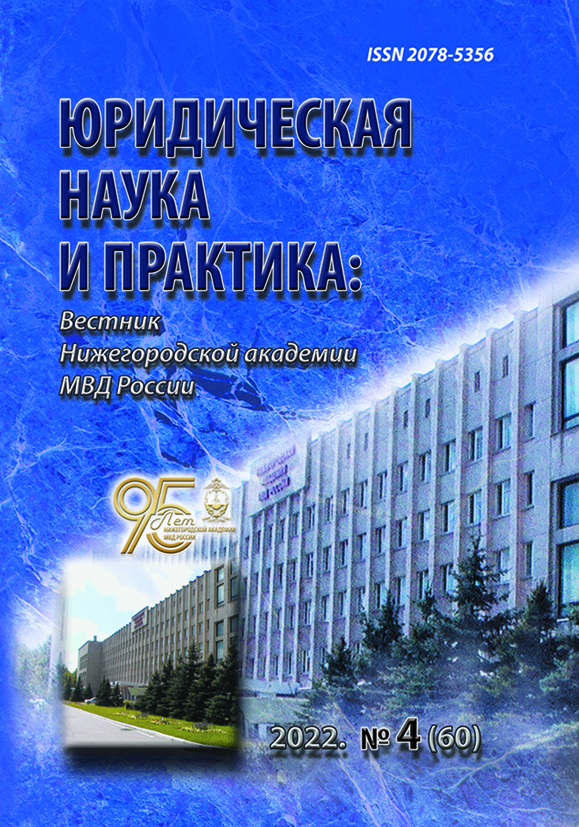Russian Federation
Modern criminal proceedings, inevitably faced with the process of digitalization, have put on the agenda the question of determining the legal nature of electronic evidence. The results of its decision are of fundamental importance for the practice of investigating criminal cases in all procedural planes. Within the framework of this article, the author of the study attempts to determine the applicability of the criterion of reliability of evidence in the evaluation of electronic evidence, offers a unique categorical definition of the criterion of reliability of electronic evidence for Russian criminal proceedings. At the same time, emphasis is placed on the specific features of determining the reliability of electronic evidence.
electronic evidence, evaluation of evidence, evaluation criteria, reliability of electronic evidence, criminal proceedings
1. Kolichenko A. A. Prerequisites for the recognition of the independence of electronic evidence in the practice of criminal proceedings. Jurist-Pravoved, 2021, no. 3 (98), pp. 147-152. (In Russ.)
2. Polyakov M. P. Proofs and figures in criminal proceedings: waiting for magic. Legal Science and Practice: Journal of Nizhny Novgorod Academy of the Ministry of Internal Affairs of Russia, 2020, no. 1 (49), pp. 229-231. (In Russ.)
3. Explanatory dictionary by S. I. Ozhegov and N. Yu. Shvedov. URL: https://dic.academic.ru/dic.nsf/ogegova/52038 (accessed 12.21.2021). (In Russ.)
4. Explanatory dictionary of T. F. Efremova, 2020. URL: https://dic.academic.ru/dic.nsf/efremova/160338 (accessed 12.21.2021). (In Russ.)
5. Etymological dictionary of the Russian language by G. A. Krylov. URL: https://krylov.academic.ru/984/ (accessed 12.21.2021). (In Russ.)
6. Ishmayeva T. P. Reliability of evidence in criminal proceedings. Bulletin of Chelyabinsk State University, Series: Pravo, vol. 1, no. 3, 2016, pp. 81-85. (In Russ.)
7. Valeev A. T., Lyutynsky A. M. Means of proof in Russian criminal proceedings: pre-trial stages: educational and practical manual. Vologda, 2019. 138 p. (In Russ.)
8. Decision of the Railway District Court of Voronezh in case no. 2-1938/2019 of January 15, 2020. URL: https://sudact.ru/ (accessed 12.20.2021). (In Russ.)
9. Kupriyanov A. A. Blockchain is proof. Criminal proceeding, 2022, no. 1. (In Russ.)
10. Evdokimova V. A. Actual problems of evaluating the results of expert research on digital video images in the investigation of road accidents. Legal science, 2020, no. 10, pp. 78-82. (In Russ.)
11. Digital criminalistics: textbook for universities / V. B. Vekhov [and others] / ed. by V. B. Vekhov, S. V. Zuev. Moscow: Yurayt Publ., 2021. 417 p. (In Russ.)
12. Voronin M. I. Unacceptable admissibility of electronic evidence. Judicial practice and gaps in the CPC. Criminal procedure, 2020, no. 10, pp. 46-55. (In Russ.)
13. Voronin M. I. Features of evaluation of electronic (digital evidence). Actual problems of Russian law, 2021, no. 8, pp. 108-118. URL: http://www.consultant.ru/cons/cgi/online.cgi?req=doc&base=CJI&n=137950#zpb5QqSOOoqYkehm (accessed 02.12.2021). (In Russ.)
14. Li E. A. On the issue of the use of electronic evidence in criminal proceedings. Bulletin of the Kyrgyz-Russian Slavic University, 2017, vol. 17, no. 6, pp. 130-132. (In Russ.)












